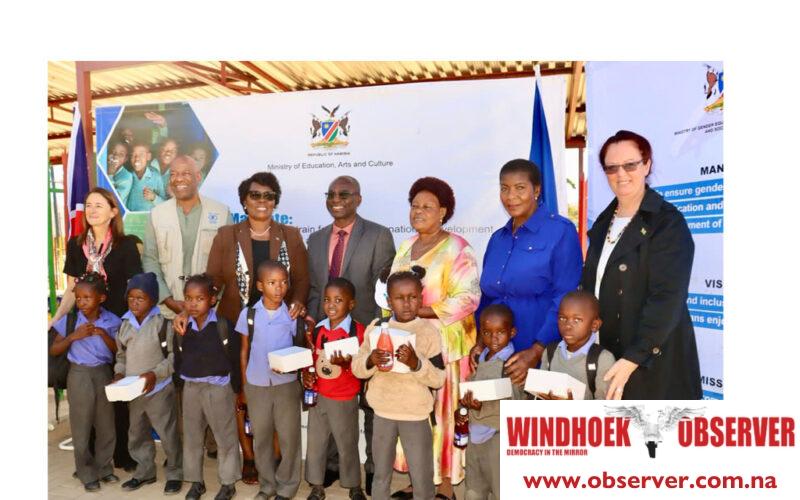Martin Endjala
The European Union (EU) has spent over N$324 million on Namibia’s early childhood development, a three-year financial agreement signed in July 2023.
This is according to EU Ambassador to Namibia, Beatriz Ana Martins, during the launch of the EU Namibia Early Childhood Development Sector Reform on 17 April at the Mix informal settlement on the outskirts of Windhoek.
The Ambassador said the funds reaffirm the continuation of the partnership with Namibia and the United Nations International Children’s Emergency Fund (UNICEF), building on the results achieved under previous programmes.
“We all know that many children have no access to early childhood development and Pre-Primary education. In fact, less than 25 percent of children aged 3 to 4 have it. That is why we want to reach the most vulnerable children, for whom access is even more challenging so that they have equal chances for a good start in life and the opportunity to develop their full potential,” she said.
Adding that, the EU and its partners acknowledge the importance of laying solid foundations in children’s early years to build a stronger and more inclusive society.
Martins said the programme aims to promote quality learning by strengthening the capacity of teachers and educators through training and performance assessment.
She added that it will also increase access to early childhood development by supporting the rehabilitation and construction of more classrooms, especially in vulnerable communities.
Education Arts and Culture Minister Anna Nghipondoka said the support comes at the right time to support the government’s efforts in providing quality skills for future leaders.
“We should be mindful that the first 1000 days are crucial in a child’s personal development and for his/her future capacity to contribute to the country’s socio-economic development,” she said.
Nghipondoka stated that the ministry has made significant progress in implementing the National Integrated Early Childhood Development Policy, the Education Act, the Food and Nutrition Security Policy, and the Child Care and Protection Act.
Stating that these policies and laws are essential for providing a solid foundation for children’s education. Therefore, the ministry has maintained a stable macroeconomic policy and has made progress in improving public financial management and budget transparency.
Meanwhile, Minister of Gender Equality, Poverty Eradication and Social Welfare, Doreen Sioka, stated that government acknowledges the significant investment in early childhood development, with the EU supporting the importance of international partnerships in advancing critical initiatives within communities.
She emphasised that these programs are crucial for equitable access and positive outcomes in children’s lives, and the support not only enhances learning environments but also brings joy to the children.




